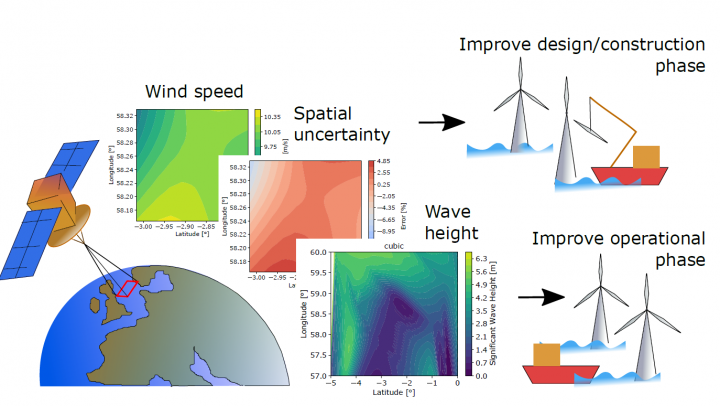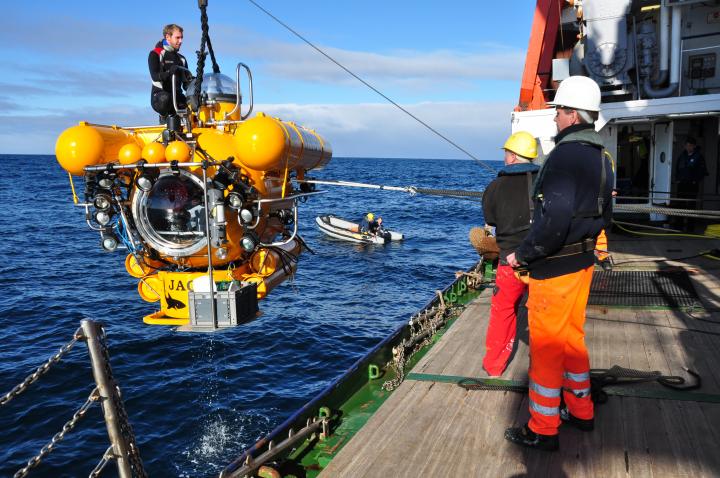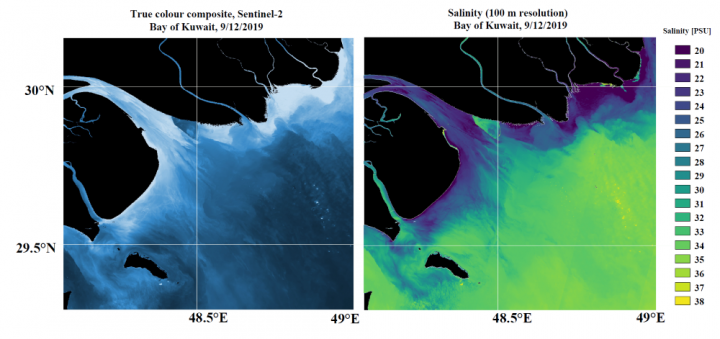Ocean Observation & Modelling
Our researchers contribute towards ocean observation endeavours to inform conservation and management decisions of the global ocean.
Ocean observation refers to the collection of data and information relating to the ocean. These data can be collected by buoys, sensors, observation platforms, or directly by researchers themselves and in turn can be modelled, or extrapolated, to predict future conditions and scenarios. Ocean observation is fundamental to inform conservation and blue-growth management decisions and to ensure a safe, healthy, and productive ocean for all end-users.
Ocean observations to enhance productivity and safety of off-shore operations:
Marine data are important for all phases of a marine renewable farm development, from site selection and device design through to construction (particularly during operations and maintenance) and decommissioning. Moreover, being able to predict the weather conditions is critical for optimisation of costs and resources, as well as ensuring the safety of offshore workers.
Based at the School of Engineering, the Coastal and Environmental Remote Sensing group (CEReS) at the School of Engineering, led by Dr Encarni Medina-Lopez, are investigating how the use of satellite data can impact the cost of marine renewable energy, by increasing the amount of data available, and improving the weather prediction techniques currently used in the sector, such as:
- The use of satellite products to assess spatial uncertainty and reduce life-time costs of offshore wind farms.
- Synergies and innovation opportunities for satellite data for offshore renewable energy sector.
- Satellite Climate Observation for Offshore Renewable Energy Cost Reduction.

Ocean observations at ocean basin-scale:
The Horizon 2020 iAtlantic Project
Coordinated by Professor Murray Roberts at the School of GeoSciences, iAtlantic was awarded € 10.65M to assess the status and health of deep and open ocean ecosystems across the whole Atlantic Ocean Basin. By creating correctly scaled and standardised marine observation frameworks that integrate measurements from different disciplines, iAtlantic is assessing the current status of these ecosystems and modelling future conditions under different future scenarios.
Southern Ocean Observing System (SOOS)
In the polar regions, our researchers are actively involved in SOOS. The overarching mission of SOOS is to facilitate the collection and delivery of essential observations on dynamics and change of Southern Ocean systems to all international stakeholders (researchers, governments, industries), through design, advocacy and implementation of cost-effective observing and data delivery systems.

Optical oceanography:
The Coastal and Environmental Remote Sensing group (CEReS) group, based at the School of Engineering is working on optical oceanography problems to estimate salinity, temperature (in collaboration with Cefas) and chlorophyll (in collaboration with University of Strathclyde and Marine Scotland) in the ocean at high spatial resolution.

The CERes group has a particular interest is in coastal areas, where remote sensing techniques struggle to produce accurate results. Moreover, the group is expanding these methods to look at water quality indicators in lakes and lochs in Scotland.
Key outputs from this work include:
- High-resolution sea surface temperature and salinity data for global coastal areas.
- Machine learning approaches for processing high-resolution satellite data.

